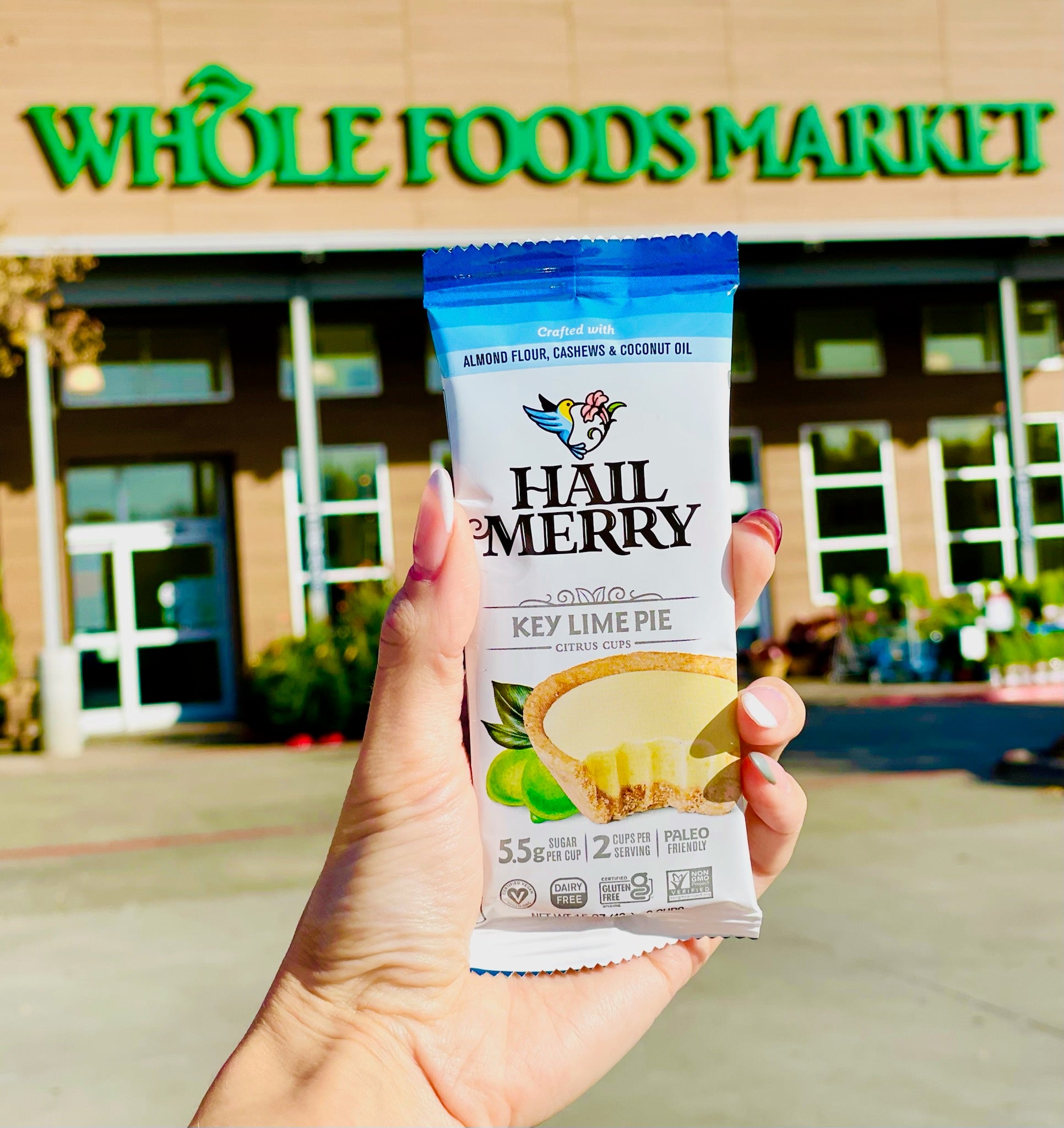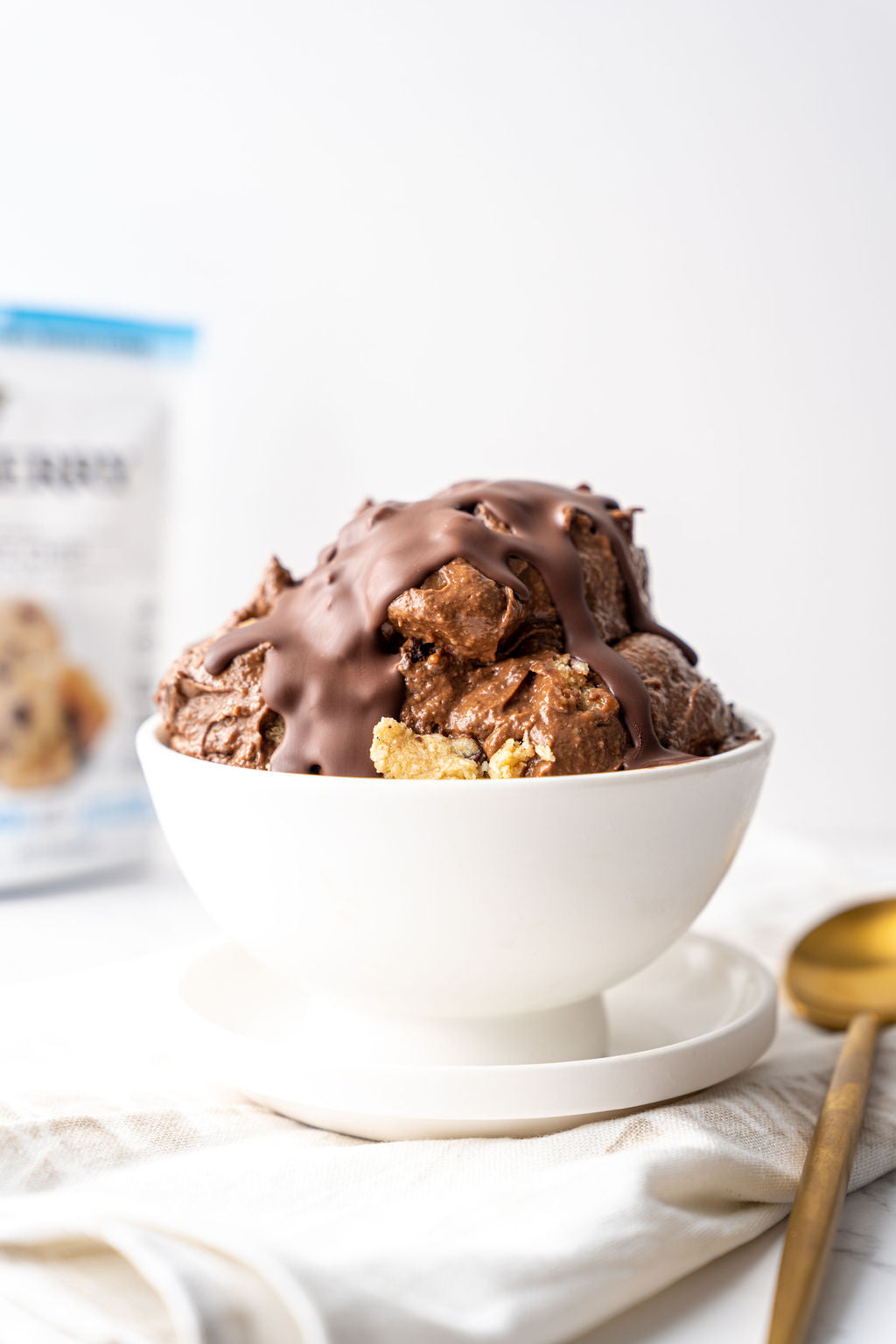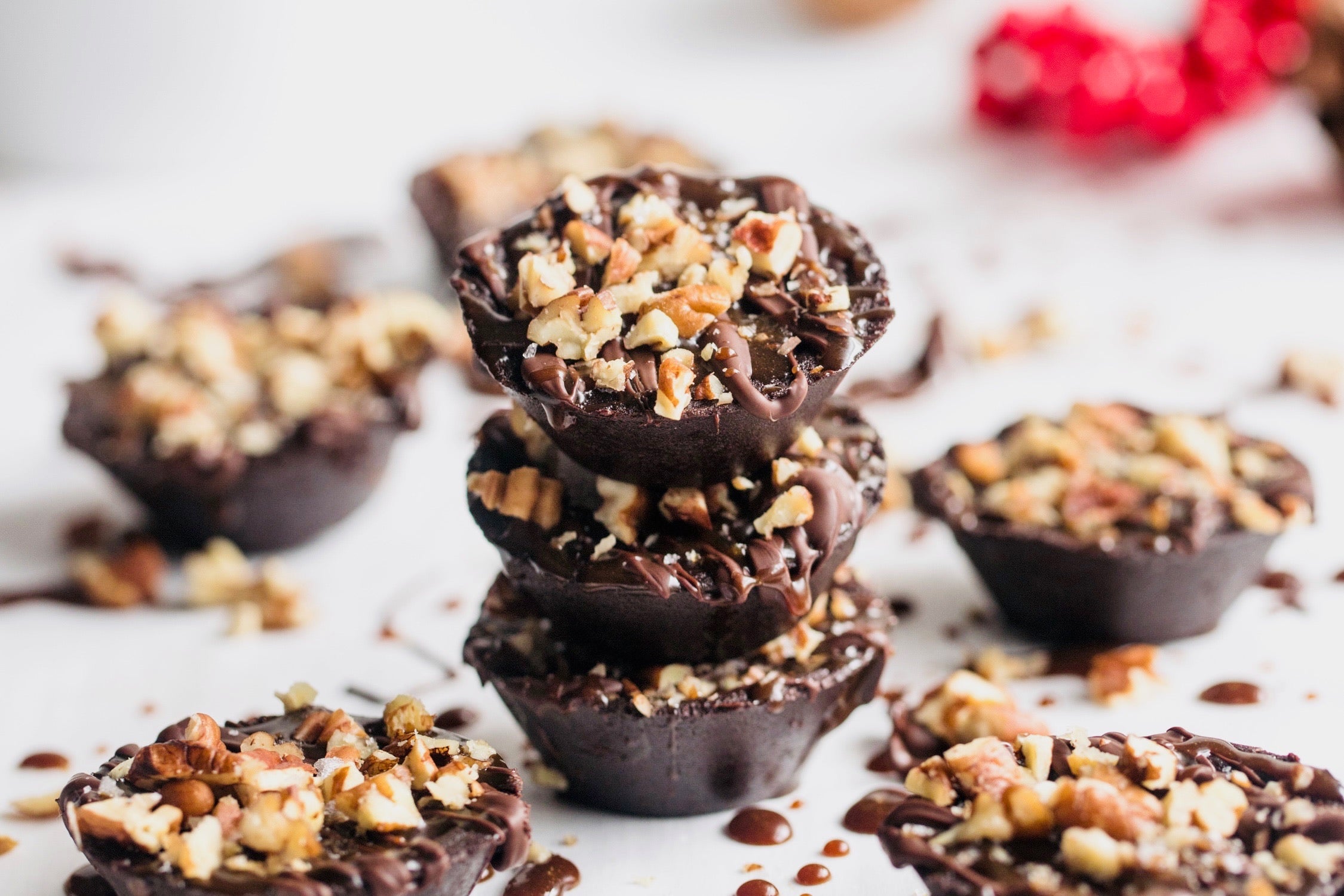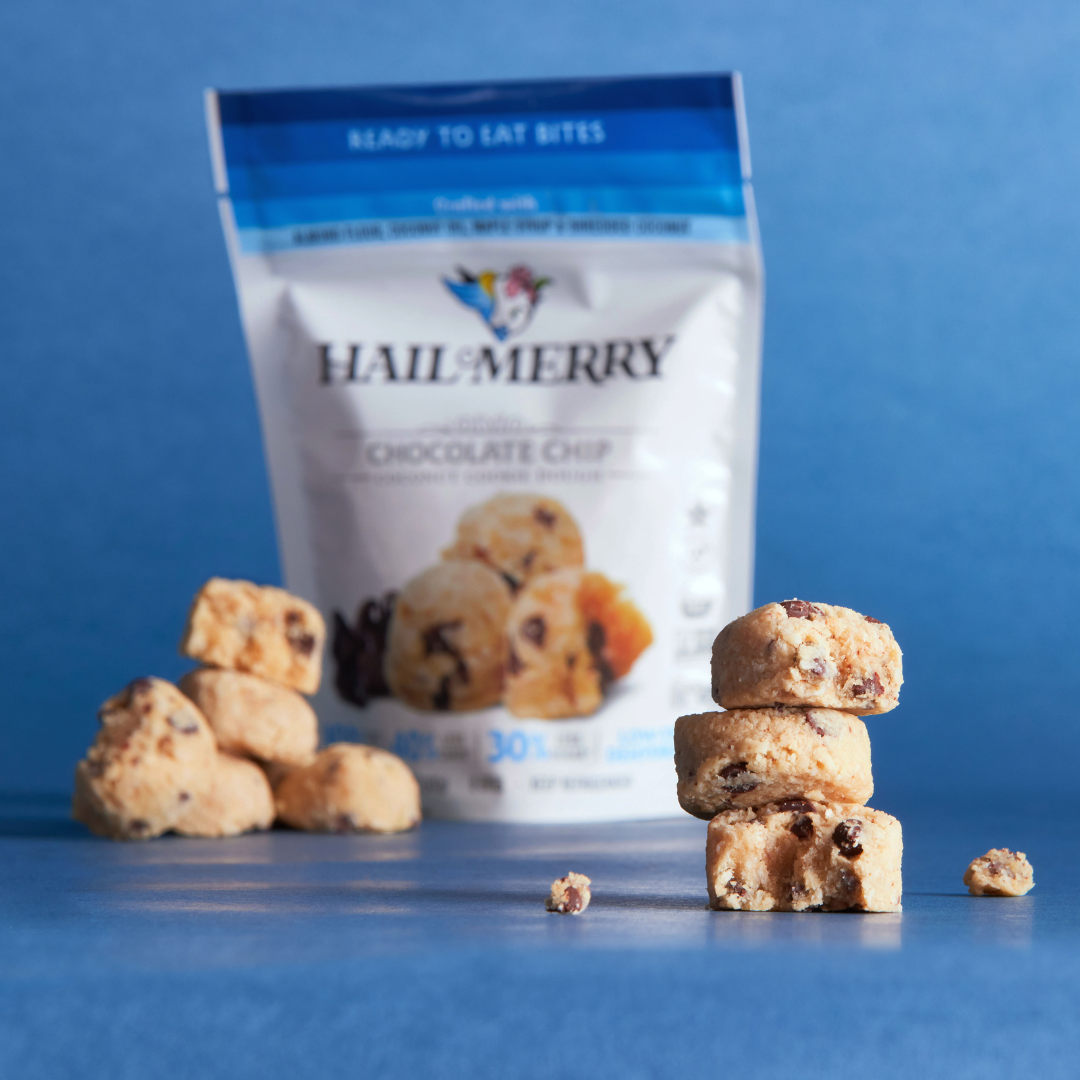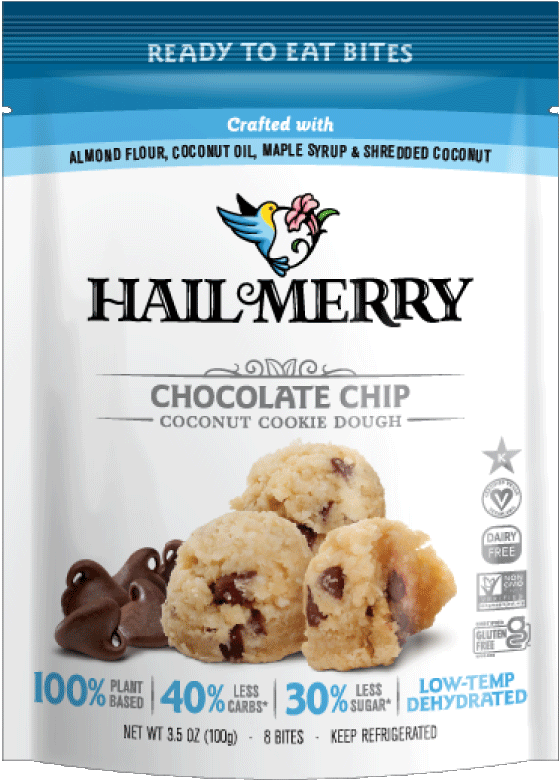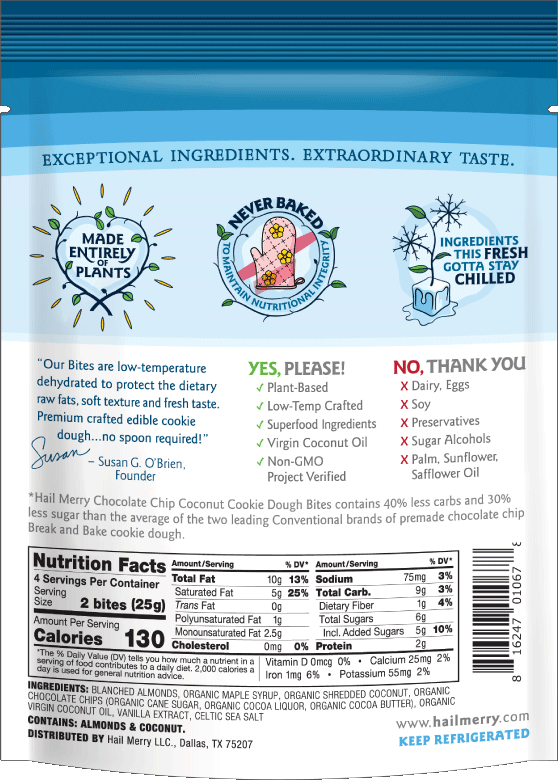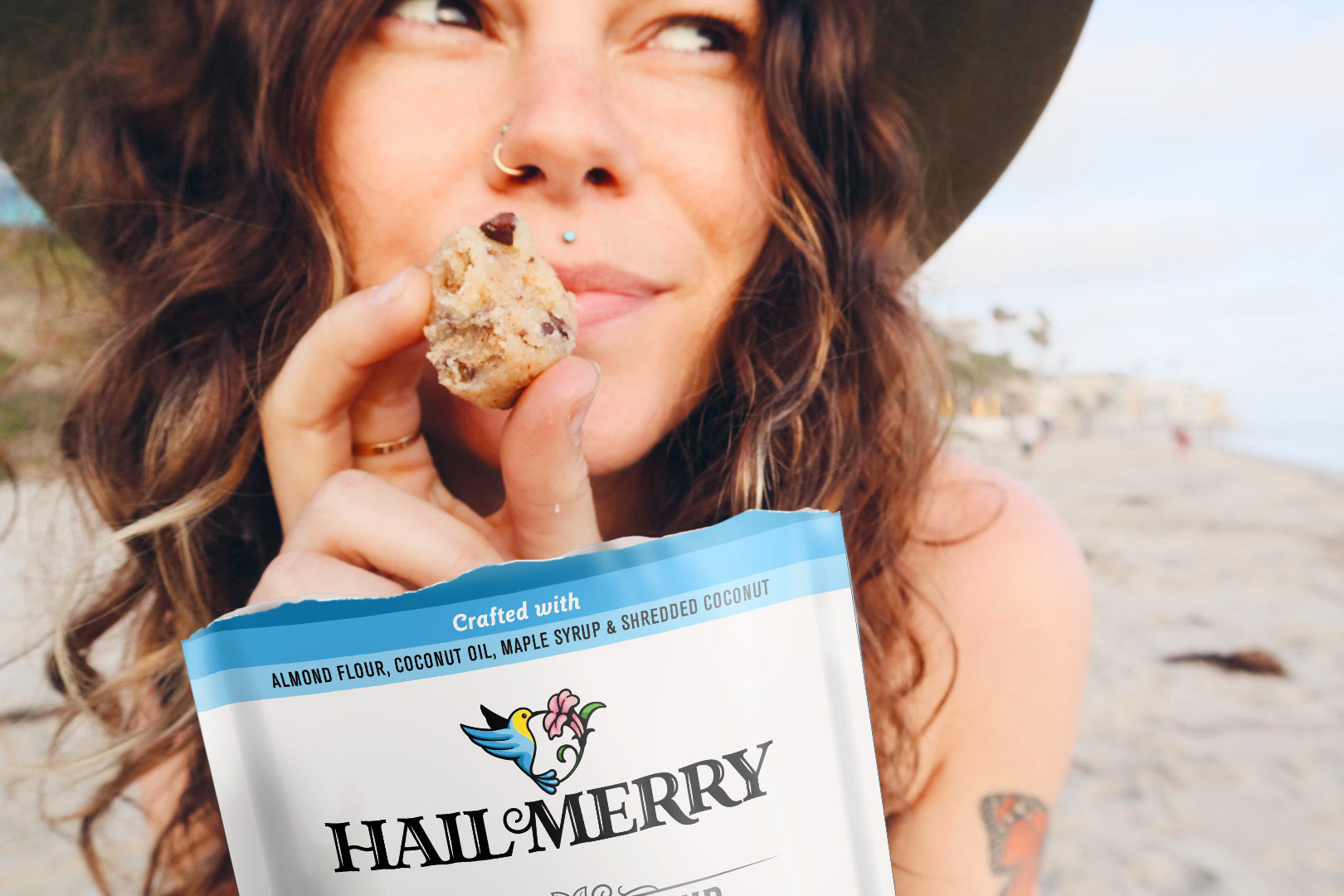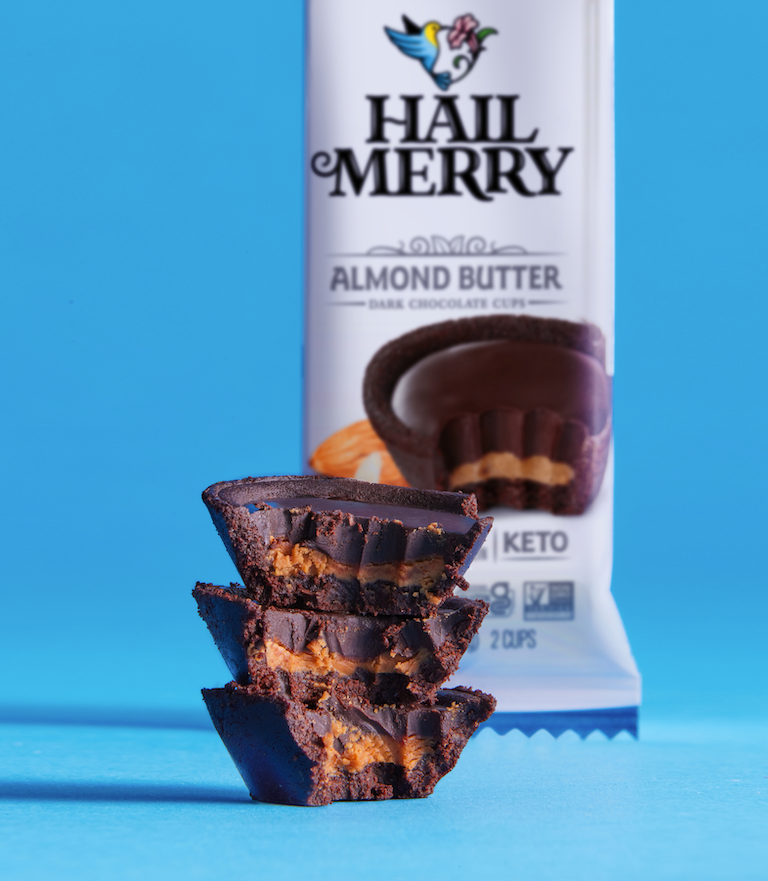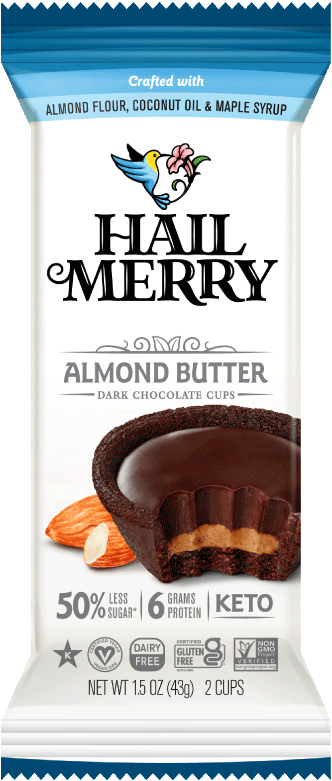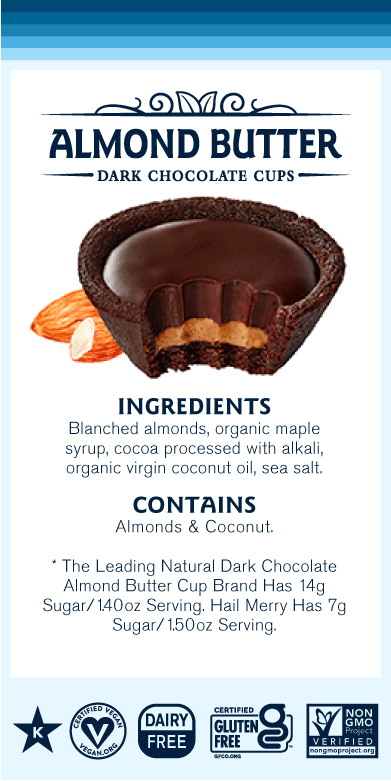Hail Merry - Feb 13 2023
Unlock the Health Benefits of Coconut:
From Antioxidants to Skin Health
This superfood can seemingly do it all — whether you’re looking to elevate your hydration, make simple substitutions while cooking and baking, or change up your skincare routine, the health benefits of coconut will make it your new go-to.

Hail Merry - Feb 13 2023
Unlock the Health Benefits of Coconut: From Antioxidants
to Skin Health
This superfood can seemingly do it all — whether you’re looking to elevate your hydration, make simple substitutions while cooking and baking, or change up your skincare routine, the health benefits of coconut will make it your new go-to.

Hail Merry - Feb 13 2023
Unlock the Health Benefits of Coconut: From Antioxidants to Skin Health
This superfood can seemingly do it all — whether you’re looking to elevate your hydration, make simple substitutions while cooking and baking, or change up your skincare routine, the health benefits of coconut will make it your new go-to.

Table of Contents:
- What Makes a Superfood?
- Healthy Fats
- Simple Healthy Swaps
- Healthier Skin
- Better Hydration
- More Delicious Ways to Consume Coconut
Table of Contents:
- What Makes a Superfood?
- Healthy Fats
- Simple Healthy Swaps
- Healthier Skin
- Better Hydration
- More Delicious Ways to Consume Coconut
What Makes a Superfood?
It’s certainly become a buzzword over the years, and it seems like more and more foods are being dubbed a “superfood.” But what makes one worthy of such a title?
By definition, it’s “a nutrient-rich food considered to be especially beneficial for health and well-being.” A superfood should be, well, super — it should extend far beyond providing one single health benefit; a true superfood works overtime in providing good-for-you properties that positively impact your body’s functioning.
So, is coconut worthy of being deemed a superfood? Does coconut check those boxes? With a resounding yes! Let’s dive into the wellness benefits this powerhouse fruit has to offer.
What Makes a Superfood?
It’s certainly become a buzzword over the years, and it seems like more and more foods are being dubbed a “superfood.” But what makes one worthy of such a title?
By definition, it’s “a nutrient-rich food considered to be especially beneficial for health and well-being.” A superfood should be, well, super — it should extend far beyond providing one single health benefit; a true superfood works overtime in providing good-for-you properties that positively impact your body’s functioning.
So, is coconut worthy of being deemed a superfood? Does coconut check those boxes? With a resounding yes! Let’s dive into the wellness benefits this powerhouse fruit has to offer.
If you’re looking for healthy fats…
We know that having fat in your diet is a good thing; in fact, it’s critical — the key is to ensure that you’re taking in healthy fats.
Having the right kind of fat in your diet can help your body:
- Better absorb nutrients, vitamins, and minerals
- Have more sustained energy to power through your day
- Have a lower risk of heart disease
- Help regulate your blood sugar levels
- Reduce inflammation
A high-fat fruit, coconut, can provide your body with the healthy kind of fat it needs to function optimally. One type of healthy fat that coconut possesses is MCTs (medium chain triglycerides), which is found in coconut oil. Some of the beneficial properties of MCTs include increased energy, improved physical performance (athletes are a fan for this reason!), a boost in heart health, and it’s been said that it may even be beneficial for gut health, too, thanks to its ability to fight bacteria and yeast growth.
The beauty of coconut is that it can be consumed in so many forms! If you’re looking to add healthy fats into your diet, you can incorporate coconut into your diet in a myriad of ways:
- Start cooking with coconut oil
- Eat coconut meat (add it to smoothies or fruit bowls, or eat it fresh as a snack!)
- Add coconut flakes as a topping to your meals
- Add coconut cream or coconut milk into your recipes as a dairy milk alternative
If you’re looking for healthy fats…
We know that having fat in your diet is a good thing; in fact, it’s critical — the key is to ensure that you’re taking in healthy fats.
Having the right kind of fat in your diet can help your body:
- Better absorb nutrients, vitamins, and minerals
- Have more sustained energy to power through your day
- Have a lower risk of heart disease
- Help regulate your blood sugar levels
- Reduce inflammation
A high-fat fruit, coconut, can provide your body with the healthy kind of fat it needs to function optimally. One type of healthy fat that coconut possesses is MCTs (medium chain triglycerides), which is found in coconut oil. Some of the beneficial properties of MCTs include increased energy, improved physical performance (athletes are a fan for this reason!), a boost in heart health, and it’s been said that it may even be beneficial for gut health, too, thanks to its ability to fight bacteria and yeast growth.
The beauty of coconut is that it can be consumed in so many forms! If you’re looking to add healthy fats into your diet, you can incorporate coconut into your diet in a myriad of ways:
- Start cooking with coconut oil
- Eat coconut meat (add it to smoothies or fruit bowls, or eat it fresh as a snack!)
- Add coconut flakes as a topping to your meals
- Add coconut cream or coconut milk into your recipes as a dairy milk alternative
If you’re looking for simple healthy swaps…
Have dietary restrictions or food allergies, or just looking for some simple swaps for a recipe? Turn to coconut! Whether you’re vegan, gluten-free, lactose intolerant, or sugar-sensitive, coconut can be used as a simple swap in just about any recipe.
Need a wheat flour alternative?
Try coconut flour! It’s not a 1-for-1 swap, but a simple googling of ratios can help you determine the right amount of coconut flour to use in a standard recipe.
Need a table sugar alternative?
Try coconut sugar! If you’re sensitive to sugar or just trying to be mindful of your consumption for health reasons, coconut sugar might be just the swap you’re looking for. Flavor-wise, it’s a nearly unnoticeable difference. Compared to the glycemic index of table sugar (65), coconut sugar comes in significantly lower (54).
Need an oil substitute?
Try coconut oil! With a smoke point of 350 degrees (olive oil has a smoke point of about 410 degrees, for comparison), coconut oil is a suitable alternative for many dishes, from stir-fry recipes to basic sauteing and pan frying. It’s worth noting that coconut oil does have a bit more flavor than typical cooking oil, so make sure it’s a flavor you enjoy before making the swap! Coconut oil can also be used while baking to replace butter, canola, or vegetable oil. (Note: Be sure to check the ratio for the substitution!) As a bonus, swapping for coconut oil will also deliver some good-for-you benefits, like antioxidants, to protect your body from free radicals and aid in lowering the risk of developing serious conditions like heart disease.
Need a low-sodium alternative?
Try coconut aminos! If you’re a big fan of stir fry or just a fan of soy sauce in general, you know that this delicious sauce comes with a hefty dose of sodium per serving. If you’re trying to manage your sodium intake, swap your soy sauce for coconut aminos! In comparison to soy sauce (280mg of sodium/teaspoon), coconut aminos have significantly less sodium (90 mg/teaspoon). Bonus: Coconut aminos are gluten-free, whereas many soy sauces are not. Flavor-wise, the two are very similar, but it’s worth giving it a taste test first to ensure you’ll enjoy it in whatever you’re eating!
If you’re looking for simple healthy swaps…
Have dietary restrictions or food allergies, or just looking for some simple swaps for a recipe? Turn to coconut! Whether you’re vegan, gluten-free, lactose intolerant, or sugar-sensitive, coconut can be used as a simple swap in just about any recipe.
Need a wheat flour alternative?
Try coconut flour! It’s not a 1-for-1 swap, but a simple googling of ratios can help you determine the right amount of coconut flour to use in a standard recipe.
Need a table sugar alternative?
Try coconut sugar! If you’re sensitive to sugar or just trying to be mindful of your consumption for health reasons, coconut sugar might be just the swap you’re looking for. Flavor-wise, it’s a nearly unnoticeable difference. Compared to the glycemic index of table sugar (65), coconut sugar comes in significantly lower (54).
Need an oil substitute?
Try coconut oil! With a smoke point of 350 degrees (olive oil has a smoke point of about 410 degrees, for comparison), coconut oil is a suitable alternative for many dishes, from stir-fry recipes to basic sauteing and pan frying. It’s worth noting that coconut oil does have a bit more flavor than typical cooking oil, so make sure it’s a flavor you enjoy before making the swap! Coconut oil can also be used while baking to replace butter, canola, or vegetable oil. (Note: Be sure to check the ratio for the substitution!) As a bonus, swapping for coconut oil will also deliver some good-for-you benefits, like antioxidants, to protect your body from free radicals and aid in lowering the risk of developing serious conditions like heart disease.
Need a low-sodium alternative?
Try coconut aminos! If you’re a big fan of stir fry or just a fan of soy sauce in general, you know that this delicious sauce comes with a hefty dose of sodium per serving. If you’re trying to manage your sodium intake, swap your soy sauce for coconut aminos! In comparison to soy sauce (280mg of sodium/teaspoon), coconut aminos have significantly less sodium (90 mg/teaspoon). Bonus: Coconut aminos are gluten-free, whereas many soy sauces are not. Flavor-wise, the two are very similar, but it’s worth giving it a taste test first to ensure you’ll enjoy it in whatever you’re eating!
If you’re looking for healthier skin…
You might be surprised to learn that coconut has a plethora of uses outside of the kitchen — it can actually become a staple in your skincare routine, too!
Struggle with acne?
As we mentioned earlier, coconut oil, in particular, has antimicrobial properties that can be helpful to those who struggle with skin ailments like acne.
Have a cut?
Coconut oil is often turned to for healing wounds, too, as it can help keep the skin clean thanks to its antibacterial and antifungal properties. Another great reason to reach for coconut oil when you’ve got an open wound? According to Conscious Coconut, “Research states that coconut oil promotes collagen production and repairs skin cells, which means that it makes for a great wound healing agent.”
Have dry skin?
Whether you’re dealing with the impacts of winter weather or have chronic dry skin, coconut oil can be a gentle, natural option to turn to for relief. Putting the oil on your skin can help to lock moisture in, thus helping your skin to stay hydrated! Because coconut oil also has anti-inflammatory properties, it can be helpful for those who struggle with eczema and psoriasis.
Need to take off your make-up?
Standard make-up removers and cleansing toners can be harsh on the skin. Coconut oil acts as an impressively effective make-up remover that’s as gentle as it is hydrating to your skin, so it’s pulling double duty! With all of its other healing properties in mind — anti-inflammatory, hydrating, antimicrobial — you’ll be doing your skin quite a few favors by reaching for coconut oil at the end of the day to remove your make-up!
If you’re looking for healthier skin…
You might be surprised to learn that coconut has a plethora of uses outside of the kitchen — it can actually become a staple in your skincare routine, too!
Struggle with acne?
As we mentioned earlier, coconut oil, in particular, has antimicrobial properties that can be helpful to those who struggle with skin ailments like acne.
Have a cut?
Coconut oil is often turned to for healing wounds, too, as it can help keep the skin clean thanks to its antibacterial and antifungal properties. Another great reason to reach for coconut oil when you’ve got an open wound? According to Conscious Coconut, “Research states that coconut oil promotes collagen production and repairs skin cells, which means that it makes for a great wound healing agent.”
Have dry skin?
Whether you’re dealing with the impacts of winter weather or have chronic dry skin, coconut oil can be a gentle, natural option to turn to for relief. Putting the oil on your skin can help to lock moisture in, thus helping your skin to stay hydrated! Because coconut oil also has anti-inflammatory properties, it can be helpful for those who struggle with eczema and psoriasis.
Need to take off your make-up?
Standard make-up removers and cleansing toners can be harsh on the skin. Coconut oil acts as an impressively effective make-up remover that’s as gentle as it is hydrating to your skin, so it’s pulling double duty! With all of its other healing properties in mind — anti-inflammatory, hydrating, antimicrobial — you’ll be doing your skin quite a few favors by reaching for coconut oil at the end of the day to remove your make-up!
If you’re looking for better hydration…
Being adequately hydrated is essential for your body’s functioning and overall well-being. The trouble is that so many people struggle to meet their recommended daily water intake. Often, the reason is that they don’t like the taste of water. Enter: coconut water.
Bored of plain water?
With an elevated taste, coconut water makes for easy (and more enjoyable, for many!) drinking, helping you to meet your hydration needs. The next time you’re feeling parched, consider reaching for coconut water (which comes in a variety of tasty flavors) to deliver your body the hydration it needs and the nutrients it will benefit from.
Need to replenish after a workout?
If you exercise regularly, coconut water is an excellent substitute for your go-to sports drink — it provides electrolytes, potassium, and nutrients to replenish your body without the massive amounts of sugar in most sports drinks. According to the Cleveland Clinic, coconut water may also be an excellent option for those who suffer from kidney stones (chat with your doctor to make sure!).
Dealing with stomach upset?
If you’re feeling a little too full after a meal or trying to manage digestive upset or bloat, coconut water may help with that, too! The water from this delicious fruit contains fiber and magnesium — two essential nutrients for healthy digestion!
If you’re looking for better hydration…
Being adequately hydrated is essential for your body’s functioning and overall well-being. The trouble is that so many people struggle to meet their recommended daily water intake. Often, the reason is that they don’t like the taste of water. Enter: coconut water.
Bored of plain water?
With an elevated taste, coconut water makes for easy (and more enjoyable, for many!) drinking, helping you to meet your hydration needs. The next time you’re feeling parched, consider reaching for coconut water (which comes in a variety of tasty flavors) to deliver your body the hydration it needs and the nutrients it will benefit from.
Need to replenish after a workout?
If you exercise regularly, coconut water is an excellent substitute for your go-to sports drink — it provides electrolytes, potassium, and nutrients to replenish your body without the massive amounts of sugar in most sports drinks. According to the Cleveland Clinic, coconut water may also be an excellent option for those who suffer from kidney stones (chat with your doctor to make sure!).
Dealing with stomach upset?
If you’re feeling a little too full after a meal or trying to manage digestive upset or bloat, coconut water may help with that, too! The water from this delicious fruit contains fiber and magnesium — two essential nutrients for healthy digestion!
If you’re looking for a delicious way to consume more coconut…
We’ve got you covered! We’re pretty crazy for coconut here at Hail Merry.
Take a quick scan of our ingredients, and you’ll notice that coconut is a key ingredient in Hail Merry’s desserts, from our Cups to our Tarts and our Cookie Dough too!
Depending on which deliciously decadent treat you pick up, you’ll find that we’ve sourced coconut in one — or many — different forms: organic virgin coconut oil, organic coconut sugar, organic coconut flour, and/or organic shredded coconut.
There’s simply no denying that we love coconut here at Hail Merry! It’s a superhero ingredient that not only adds delicious flavor but amazing texture, too. Using coconut also helps us to ensure that our products are more inclusive to those who may have food allergies and intolerances (like gluten or dairy). Not to mention, this superfood offers some seriously amazing health benefits — and we’d argue that there’s nothing better than a dessert that’s delicious and good for you, too.
If you’re looking for a delicious way to consume more coconut…
We’ve got you covered! We’re pretty crazy for coconut here at Hail Merry.
Take a quick scan of our ingredients, and you’ll notice that coconut is a key ingredient in Hail Merry’s desserts, from our Cups to our Tarts and our Cookie Dough too!
Depending on which deliciously decadent treat you pick up, you’ll find that we’ve sourced coconut in one — or many — different forms: organic virgin coconut oil, organic coconut sugar, organic coconut flour, and/or organic shredded coconut.
There’s simply no denying that we love coconut here at Hail Merry! It’s a superhero ingredient that not only adds delicious flavor but amazing texture, too. Using coconut also helps us to ensure that our products are more inclusive to those who may have food allergies and intolerances (like gluten or dairy). Not to mention, this superfood offers some seriously amazing health benefits — and we’d argue that there’s nothing better than a dessert that’s delicious and good for you, too.




